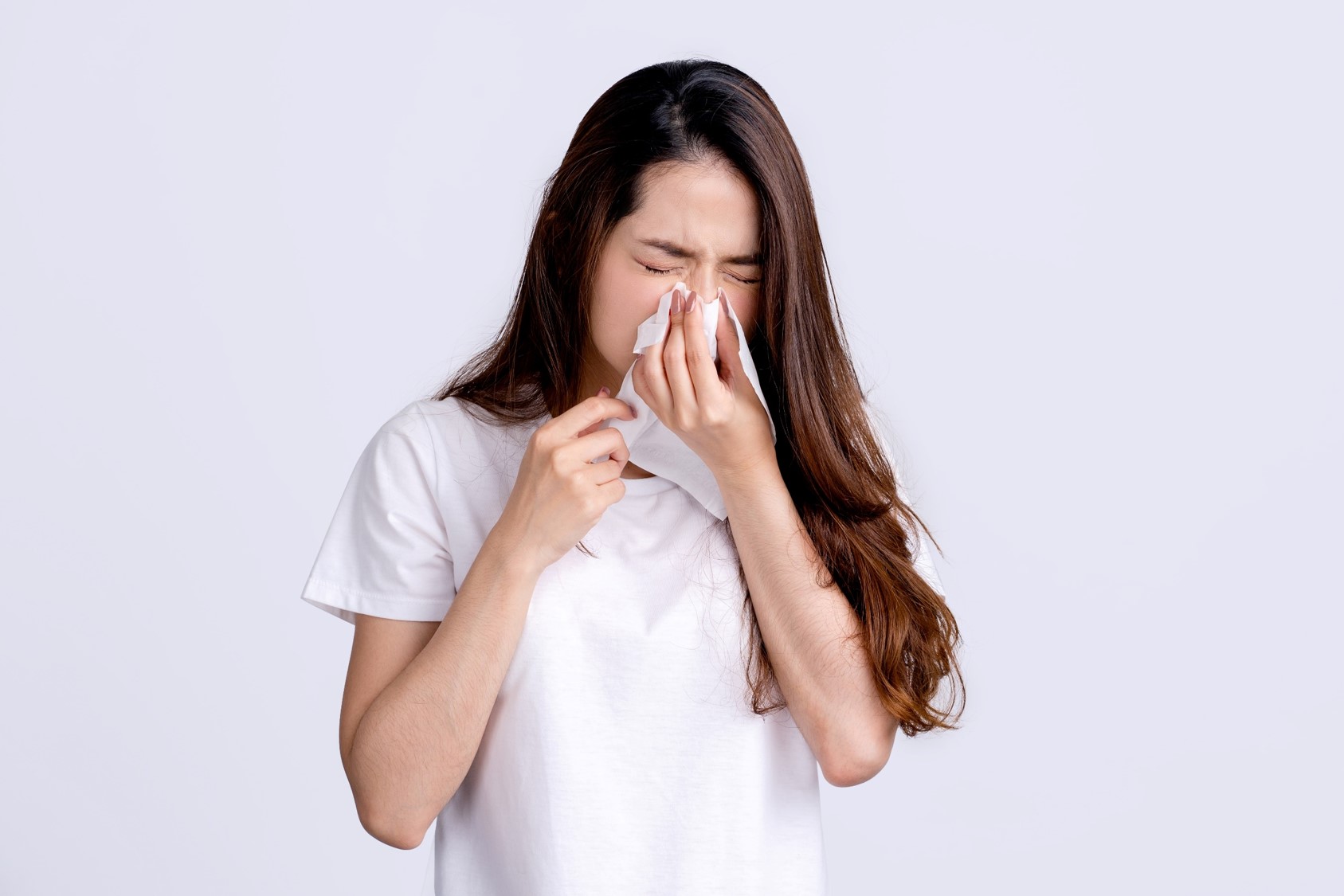Do you ever suffer from continuous sneezing with dizziness, rhinorrhea, tearing, nasal congestion, or running nose after getting up in the morning, especially in a cool day? If your answer is yes, you may have allergic rhinitis, especially your symptoms are changed in accordance with weather conditions.
What is allergic rhinitis?
Patients who have allergic rhinitis may suffer from sneezing, running nose, nasal congestion, nasal itching or eye itching. Severe symptoms include weakness, dizziness, poor attention, poor faculty of memory, and insomnia related to nasal congestion.
Causes for allergic rhinitis
- The main cause of allergic rhinitis is exposing to allergens, which activate immune reaction. The common allergens in Taiwan include dust mite, pollens, animal hair, and etc.
- The change of vessel permeability induced by the reflex of parasympathomimetic function is also a risk factor.
- Patients with allergic rhinitis are troubled by weather condition in Taiwan because it tends to be humid with severe air pollution.
Prevention and health care
- Stay warm before getting out of bed in the morning.
- Rub your hands warm and massage around your nose for 20 times.
- Spare five minutes after waking up to do some stretch or light exercise before starting the day.
- Stay eased and relaxed; have plenty of rest. Don’t stay up all night.
- Work out moderately.
- Keep your surrounding environment clean. Keep it dry, circulating, and bright to prevent allergens from prospering.
- Patients allergic to animal fur or cotton should not use too much carpet or feather related materials; use synthetic fibers instead.

Food taboos
- Avoid ice-cold beverages such as ice cream, soft drinks, beer, etc.; as well as cold fruits and vegetables like watermelon, coconut, grapefruit, pear, white radish, bamboo shoots, Chinese cabbage, and etc.
- Avoid spicy, hot, barbecued, or fried foods such as pepper, garlic, onions, barbeque sauce, leek, lamb, pickled objects, coffee, and curry.

